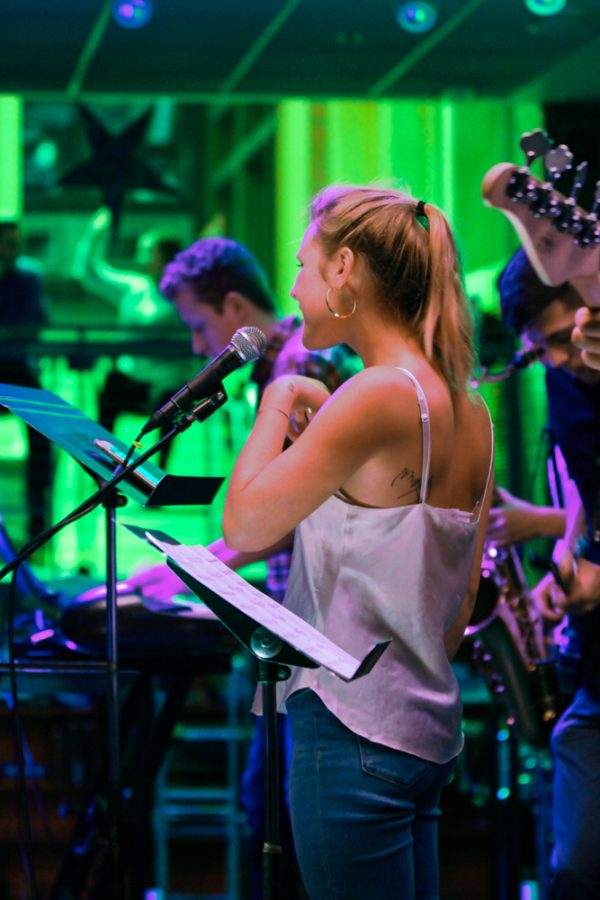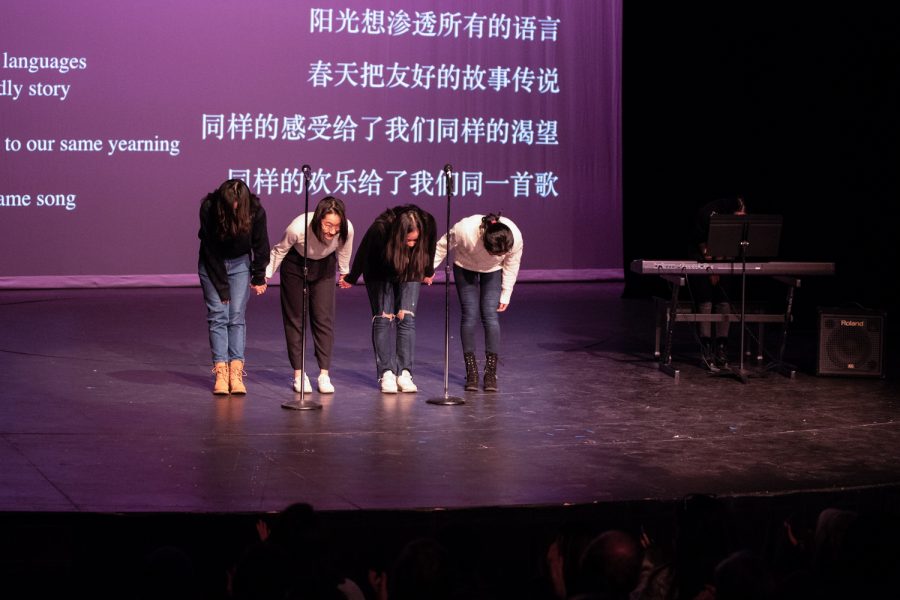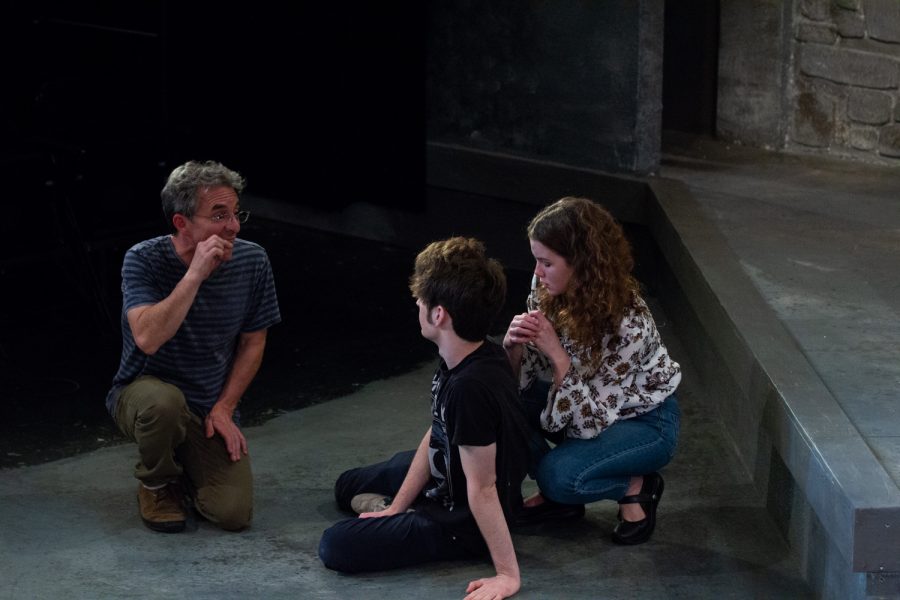
The Divertimento Baroque Opera Company, directed and conducted by junior Jackson Maberry, does not fit anyone’s stereotype of opera. In their recent performance of Henry Purcell’s “Dido and Aeneas,” nobody was having histrionics and there was no formal acting or theatrical staging. Rather, it was completely about the music: in all its stripped-down, beautiful elegance. Most astoundingly, the opera company and its production are entirely student-run. With only five musicians, 16 singers and Maberry, their one-man leader, the group brought Purcell’s opera to life.
Speaking before the show, junior McKenna Milici, who sings the part of Belinda, talked about the birth of the opera company.
“This has been a really cool experience because I got to see it from the inception,” Milici said. “[Maberry] had this idea last year: he came to us, hanging out in a friend’s apartment, and he said, I’ve got this idea. I want to put on this production which requires a chorus, and soloists, and an orchestra and a harpsichord: and we all went, Oh my gosh that’s amazing, and in the back of my mind I thought, no way is this going to happen, it’s just too big. He had to find all the players and singers . . . But one by one the pieces just started coming together.”
Maberry recalled the moment that inspiration struck.
“Our [music history] teacher played us one small piece from this show,” Maberry said. “It’s the second to last number : ‘Dido’s Lament.’ Dido sings about: I’m dying, I’ve lost my love, I’m dying of a broken heart: and even though the text throughout the opera is very simple, very unassuming,the music itself has so much delicacy, so much intricacy and therefore so much evocative power. From the very first hearing I was entranced. I realized that it was possible to do this production here, and since it was possible, I knew I had to.”
The group has naturally had to overcome a number of difficulties and setbacks to make Maberry’s vision reality. Staff accompanist and ’05 alumnus Nathan Shiu, who played harpsichord in the production, addressed the sensitivity required on Maberry’s part to assume authority and direct his peers.
“I can see the difficulty in dynamics, being friends with the people that he works with, but needing to take the lead, and trying to find the balance there,” Shiu said. “There’s always going to be some awkwardness when a student has to lead fellow students. I feel like he has to put on different hats once he enters the door and he’s learning how to do that, which is hard.”
The company also had to face an unexpected setback from the illness circling the campus.
“We were originally going to do it a few weeks ago,” said junior and chorus member Michelle Davenport. “One of our leads was ill with the flu and we didn’t feel ready.”
In addition, the time demands of directing and conducting the opera group fall heavily on Maberry, who must arrange and coordinate separate rehearsals for all the component groups and then bring them into a cohesive unit.
“I rehearse the chorus on Sundays, the strings on Wednesdays, and the soloists on Fridays,” Maberry said. “Only in the last couple weeks have we had everybody together, and then only for a couple times: you don’t have the luxury of many full rehearsals.”
Maberry discussed the challenges of directing “Dido and Aeneas” specifically.
“It’s a huge mess, all by itself,” he laughed. “I think the biggest challenge was figuring out how to conduct the recitatives. Opera is not just arias, song after beautiful complicated song, not just choruses, not just instrumental interludes. Most of the actual plot occurs over the course of something called a recitative, which is much simpler melodies, so the concentration is on what the characters are saying, as opposed to these beautiful, florid lines of music. What’s so difficult about them is, you can’t just click through a tempo; tick tick tick tick: doesn’t work. The patterns of our speech: there’s halting, there’s moving forward, there’s intonation lifts: there’s a lot of intricacy there. And so in doing the recits, we strive to make it speech-like and not be tied down by the meter.”
Maberry and his friends overcame these obstacles to deliver a compelling and beautiful performance. Catching Maberry briefly after the show in a circle of congratulators, he was tired but glowing.
“I’m happy,” he said.












Momster • Nov 12, 2009 at 6:47 pm
I could not be more proud! I only wish we had been there.